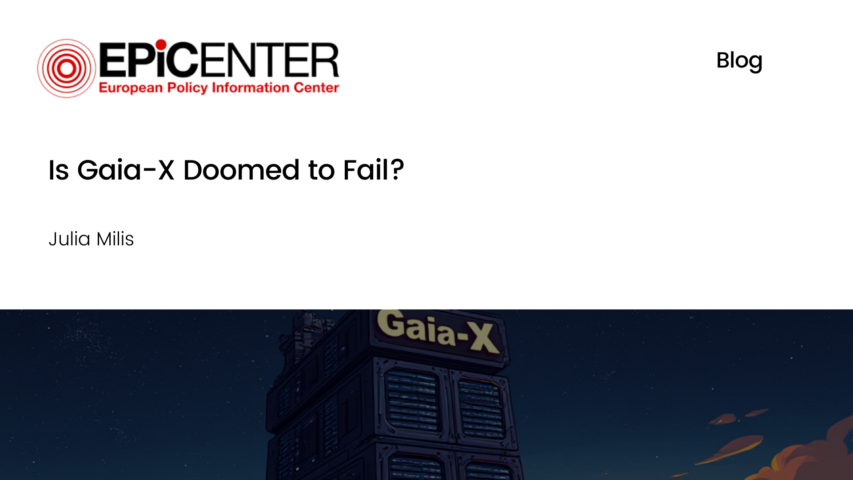Is Gaia-X Doomed to Fail?

Is Gaia-X Doomed to Fail
Julia Milis // 20 November 2020
As we are nearing the end of the German presidency of the Council of the EU, it is time to assess the term’s projects and aspirations. One of these is GAIA-X, an initiative started by Germany and France to create a federated cloud infrastructure. This entails establishing a platform for European businesses to secure and share data as well as to search for data storage providers. Whilst the project seems intriguing at first, it is doomed to fail due to the ambition of “digital sovereignty” being misplaced and unlikely to be beneficial for the newcomer and the average consumer.
For some European leaders a federated cloud infrastructure is an attractive project because (amongst others) it would advance digital sovereignty. Germany is interested in establishing such a platform to reduce European dependency on big US cloud companies. Figure 1 shows the market shares of incumbent firms in the cloud infrastructure market. Around 60% of the market is dominated by three key US players: Amazon Webservices, Microsoft Azure, and Google Cloud. The other 40% are held by smaller international companies such as Tencent Cloud, Salesforce, and Backblaze (not indicated below).
Figure 1: Cloud Infrastructure Market Shares
As the figure shows, most of the cloud infrastructure market is concentrated in the US. European leaders argue that this market should be rebalanced with a European player. This aim appears protectionist as the project’s motivation implies a certain opposition to specialization and globalization. To make matters worse, this ambition is neither economically advantageous for GAIA-X nor the average consumer.
GAIA-X is destined to be fruitless because the newcomer will be confronted with multiple economic impediments. These include the incumbents’ economies of scale and greater available resources to fund innovative approaches. Another challenge will be the high fixed starting costs and minimum technical requirements of the cloud market. Considering these hindrances, the success of the investment involves uncertainty and requires sufficient financial and political support. However, as there currently is only limited enthusiasm from EU member states about the initiative, this is unlikely to be the case. It appears that the risk of GAIA-X failing due to the expertise and efficiency of incumbents is high.
Another reason the project is unlikely to succeed is the low probability of economic benefit to users (through price differences or new product varieties). Due to the productive nature of the market, it is unlikely that a newcomer would substantially affect the array of prices and products. Figure 2 illustrates the price per GB of storage per month and GB per download for Backblaze (a smaller competitor) and the three biggest players (Amazon Webservices, Microsoft Azure, and Google Cloud).
Figure 2: Price per GB of 4 Firms in the Cloud Infrastructure Market
Figure 2 illustrates that whilst the companies with the largest market shares have higher and similar prices, smaller firms such as Backblaze (and doubtlessly others from figure 1) offer substantially lower prices. This indicates that there is diversity in product prices (and presumably product varieties). It does not appear evident how GAIA-X could improve this situation.
GAIA-X is pointless because economic advantages to the firm or its consumers are unlikely. This suggests that there is no economic motivation for the project. It is apparent that the reasoning for a European player may be more political than financial. These political motivations such as sovereignty ambitions are likely to hurt consumers and innovation. This does not seem to be an efficient use of EU taxpayer resources.
EPICENTER publications and contributions from our member think tanks are designed to promote the discussion of economic issues and the role of markets in solving economic and social problems. As with all EPICENTER publications, the views expressed here are those of the author and not EPICENTER or its member think tanks (which have no corporate view).





